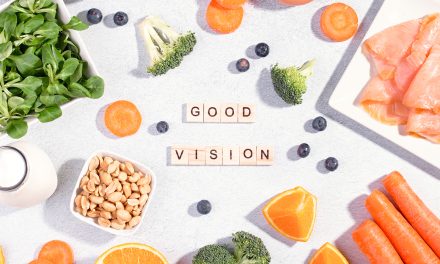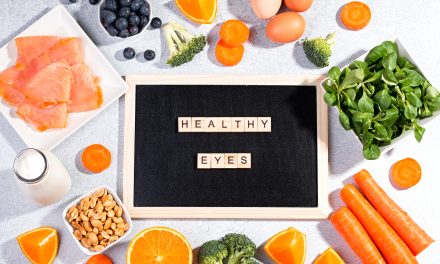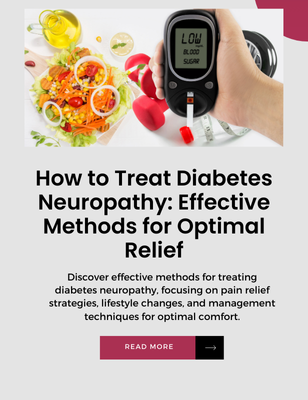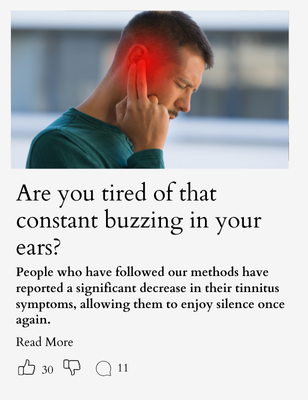Maintaining healthy eyes naturally is a smart way to ensure good vision throughout life. Anyone can enhance their eye health by making small but impactful changes to daily habits. Eating a balanced diet rich in vitamins and nutrients, such as carrots, spinach, and fish, can significantly support your eyes. Regular exercise and staying hydrated also play key roles in keeping your vision sharp.
Equally important is protecting your eyes from strain and injury. This can be achieved by following the 20-20-20 rule: every 20 minutes, look at something 20 feet away for at least 20 seconds. Additionally, wearing sunglasses and avoiding excessive screen time are simple yet effective strategies to minimize damage.
Visiting an eye doctor regularly is crucial. Even if your vision is perfect, check-ups can catch issues early. Managing chronic conditions like diabetes and ensuring proper sleep are essential to eye health.
Key Takeaways
- Proper diet and hydration support eye health.
- Protecting eyes from strain and injury is critical.
- Regular eye check-ups and good sleep are vital.
Understanding Eye Health
The health of your eyes is crucial for maintaining good vision and quality of life. This section will cover the anatomy of the eye and common issues that can affect it.
The Anatomy of the Eye
The eye is a complex organ with several parts that work together to process visual information. The cornea is the clear, dome-shaped surface covering the eye’s front. It helps to focus incoming light. The iris is the colored part of the eye, which adjusts the size of the pupil to control how much light enters.
The lens, located behind the iris, further focuses light onto the retina at the back of the eye. The retina contains photoreceptor cells (rods and cones) that convert light into electrical signals. These signals are then sent to the brain via the optic nerve. The macula, a small, central area of the retina, is responsible for sharp, detailed vision.
Common Eye Issues and Disorders
Common eye issues include refractive errors such as nearsightedness, farsightedness, and astigmatism. These conditions occur when light is not focused correctly on the retina, causing blurry vision. Dry eye syndrome is another common problem, often resulting from insufficient tear production or poor-quality tears.
Age-related macular degeneration (AMD) affects the macula and leads to central vision loss. Glaucoma involves increased pressure within the eye, which can damage the optic nerve and lead to vision loss. Cataracts cause the lens to become cloudy, impairing vision. Diabetic retinopathy affects the blood vessels in the retina and is a complication of diabetes.
Eye infections such as conjunctivitis (pink eye) can cause redness, swelling, and discomfort. Timely diagnosis and treatment are crucial for managing these conditions effectively.
Nutritional Support for Eyes
Diet can greatly impact eye health. Consuming certain vitamins, minerals, and foods can help protect against eye diseases and improve vision.
Essential Vitamins and Minerals
Vitamin A is crucial for vision. It helps maintain the cornea, the eye’s outermost layer. Carrots are a well-known source of vitamin A.
Vitamin C, which is found in oranges and strawberries, protects against cataracts and strengthens blood vessels in the eyes.
Vitamin E is an antioxidant against age-related macular degeneration (AMD). Foods like almonds and sunflower seeds are rich in vitamin E.
Zinc supports the health of the retina and helps vitamin A create melanin. Oysters, beef, and pork are good sources of zinc.
Lutein and Zeaxanthin reduce the risk of chronic eye diseases. They are found in leafy greens like spinach and kale.
Superfoods for Eye Health
Leafy Greens such as spinach and kale are rich in lutein and zeaxanthin. They help protect the eyes from harmful light and oxidative damage.
Cold-water Fish like salmon, tuna, and trout are high in omega-3 fatty acids. These fats can reduce the risk of dry eyes and AMD.
Nuts and Seeds, especially almonds, are packed with vitamin E. This vitamin is known for its protective properties against oxidative stress.
Eggs are excellent for eye health. They contain vitamin A, lutein, and zeaxanthin. The nutrients in eggs support retinal function and prevent night blindness.
Citrus Fruits like oranges and grapefruits are loaded with vitamin C. They help combat free radicals and keep the eyes healthy.
Incorporating these nutrients and superfoods into your diet can significantly support overall eye health and vision.
The Role of Hydration
Hydration plays a critical role in maintaining eye health. Proper hydration ensures the eyes are well-lubricated, which is essential for clear vision and comfort.
- Tear Production: Water supports tear production, which helps lubricate the eyes and wash away debris. Tears provide a smooth surface for light to enter the eye, improving vision quality.
- Preventing Dry Eyes: Dehydration can lead to dry eyes, which may cause discomfort and vision problems. Regular water intake helps keep the eyes moist and reduces the risk of dryness.
- Reducing Puffiness: Insufficient water intake can result in puffiness around the eyes. Drinking enough water can help reduce puffiness and maintain a healthy appearance.
- Supporting Eye Tissue Health: Adequate hydration maintains the health of eye tissues, including the cornea, which is crucial for clear vision. Dehydration may cause these tissues to lose their clarity.
Indicators of Dehydration:
| Indicator | Description |
|---|---|
| Infrequent urination | Less frequent bathroom visits |
| Dark yellow urine | Sign of concentrated urine |
| Fatigue | Feeling unusually tired |
| Dizziness | Lightheadedness or fainting |
For more insights on hydration’s impact on eye health, visit this Zenni Optical article.
Maintaining proper hydration is essential to eye health and overall well-being. Ensure regular fluid intake to support the eyes’ function and protect against common issues. For those experiencing persistent dryness, hydrating eye drops can be helpful. More details can be found in this Omni Eye article.
Protective Strategies
Maintaining healthy eyesight involves more than just eating nutritious foods. Wearing sunglasses and using protective eyewear are crucial steps to protect eyes from damage.
Wearing Sunglasses
Sunglasses are essential for protecting eyes from harmful ultraviolet (UV) rays. UV exposure can lead to problems like cataracts, macular degeneration, and even eye cancer. Choose sunglasses that block 100% of both UVA and UVB rays for the best protection.
Wrap-around styles are effective as they reduce the amount of UV light entering from the sides. Polarized lenses can reduce glare, making it easier to see in bright conditions, especially useful while driving. Regular use of sunglasses can significantly decrease the risk of long-term eye damage.
Using Protective Eyewear
Protective eyewear is vital for preventing injuries during activities that pose a risk to the eyes. Sports like basketball, racquetball, baseball, and hobbies such as woodworking or gardening can potentially cause eye damage.
Safety glasses, goggles, or helmets with face shields reduce the risk of injury. Materials like polycarbonate are especially recommended because they are highly impact-resistant. Using the correct type of protective gear for each specific activity is critical to ensuring maximum eye safety. Regular assessment and replacement of damaged eyewear will also help maintain the highest level of protection.
Proper Lighting and Eye Strain Prevention
Proper lighting and taking regular breaks from screens are crucial for reducing eye strain. These practices can significantly enhance eye comfort and maintain better eye health.
Adjusting Ambient Lighting
Proper lighting in your environment can significantly reduce eye strain. Use ambient lighting that mimics natural light to create a comfortable eye setting. Avoid relying on bright, artificial lighting that can cause glare and discomfort. Position your lighting sources to reduce shadows and reflections on screens.
Using blue light filters or coatings on screens can help further reduce strain. Studies indicate that blue light can cause significant eye discomfort and headaches. Alternatives include purchasing blue light-blocking glasses or applying screen protectors to filter out blue light. For more tips, visit Atlantic Eye Institute’s guide on proper lighting.
Taking Screen Breaks
Taking regular breaks from screen work is essential. The 20-20-20 rule is valuable: every 20 minutes, look at something 20 feet away for 20 seconds. This can help relax your eyes and reduce strain. Moving away from the screen and focusing on distant objects can ease eye muscles and prevent long-term damage.
It’s also beneficial to take longer breaks. Stepping outside, getting a glass of water, or simply closing your eyes for a few moments can be refreshing. Regular breaks not only improve eye health but also enhance overall productivity. For more details on adequate screen breaks, check out this guide from Verywell Health.
Eye Exercises for Strength and Focus
Regular eye exercises can help improve vision, strength, and focus. Here are some practical exercises you can try at home.
Focusing Exercise
Hold your thumb 10 inches from your face and focus on it for 15 seconds. Then, shift your gaze to an object 20 feet away for another 15 seconds. Repeat this 5 times to help enhance focus.
The 20-20-20 Rule
To reduce eye strain, follow the 20-20-20 rule. Every 20 minutes, look at something 20 feet away for at least 20 seconds. This gives your eyes a break and helps maintain focus.
Figure Eight
Sit comfortably and trace a prominent figure eight with your eyes, focusing on the motion. This exercise helps with eye coordination and flexibility. Do this for about 30 seconds in one direction, and then switch.
Near and Far Focus
Hold your finger a few inches in front of your eyes. Focus on it, then slowly move your finger away. Focus on a distant object, then return your focus to your finger. Repeat 3 times to improve focusing skills.
Eye Rolling
Please close your eyes and slowly roll them to the left and right. Repeat 3 times to help stretch and strengthen the eye muscles.
Palming
Rub your hands together to generate heat and gently cup them over your closed eyes for about 30 seconds. This relaxes the eye muscles and can reduce strain.
Incorporating these simple exercises into your daily routine can help keep your eyes healthy and improve overall function.
Consistent Eye Check-Ups
Regular eye exams are crucial to maintaining healthy eyes. Detecting issues early can prevent more severe problems later on. It’s essential for everyone, including those with perfect vision, to schedule eye check-ups consistently.
A comprehensive eye exam can uncover conditions like glaucoma, cataracts, and macular degeneration. Early detection means early treatment, often less invasive and more effective.
Frequency of Eye Exams:
- Children: The first exam is at 6 months old, again at age 3, and before starting school.
- Adults: Every 2 years until age 60, then annually.
- Risk groups: More frequent exams if there’s a family history of eye disease, diabetes, or high blood pressure.
Eye doctors, optometrists, or ophthalmologists can provide a detailed eye health assessment. They use various tests to check visual acuity, depth perception, eye alignment, and eye movement.
Regular visits can also help update prescriptions for glasses or contact lenses. Vision changes occur gradually, and timely adjustments can improve daily functioning.
The information provided by Healthgrades on eye check-ups provides more detailed guidelines and information about what to expect during an eye exam.
Maintaining a routine for eye check-ups ensures that any subtle changes in vision are addressed promptly, effectively preserving eye health.
Managing Chronic Conditions
Chronic conditions like diabetes and hypertension can significantly impact eye health. Proper management of these conditions is crucial in preventing vision problems.
Diabetes and Eye Health
Diabetes can lead to several eye problems, such as diabetic retinopathy, cataracts, and glaucoma. Diabetic retinopathy happens when high blood sugar levels damage the blood vessels in the retina, causing them to leak or become blocked. If not managed properly, this can lead to vision loss.
Preventing eye complications involves checking blood sugar levels, having regular eye exams, and maintaining a healthy lifestyle. For instance, a balanced diet rich in vegetables, fruits, and whole grains can help regulate blood sugar levels. Regular physical activity is also beneficial in managing diabetes and its effects on the eyes. Timely medical treatment and supervision are essential to prevent severe damage and maintain good eye health.
Hypertension’s Effects on Vision
High blood pressure, or hypertension, can also affect vision. It may cause hypertensive retinopathy, where high blood pressure damages the blood vessels in the retina. Symptoms can include blurred vision and even vision loss.
Managing hypertension involves regular blood pressure monitoring and following a healthy diet low in salt, alcohol, and saturated fats. Regular exercise and avoiding smoking can also help control blood pressure levels. Medications prescribed by a healthcare provider should be taken as directed to keep blood pressure in a safe range. Consistent eye check-ups are crucial to detect early signs of hypertensive retinopathy and prevent long-term damage.
Healthy Lifestyle Choices
Making healthy lifestyle choices can significantly impact eye health. Avoiding harmful habits and maintaining a balanced weight are two key strategies to ensure your eyes stay in optimal condition.
Smoking Cessation
Smoking is harmful to the eyes. It increases the risk for severe eye conditions such as cataracts, macular degeneration, and optic nerve damage. By quitting smoking, individuals can reduce their risk for these eye diseases.
The chemicals in cigarettes can restrict blood flow to the eyes. This restriction can lead to a lack of essential nutrients and oxygen for healthy eyesight. Moreover, smoking can cause inflammation and oxidative stress, further damaging eye tissues.
Those who quit smoking often see improved eye health. The risk of developing conditions like uveitis and inflammation of the eye’s middle layer also decreases. Engaging in programs or seeking professional help can aid in successfully quitting smoking and protecting eye health.
Maintaining a Healthy Weight
A healthy weight helps reduce the risk of diabetes. Diabetes can lead to diabetic retinopathy, a severe eye condition that damages the blood vessels in the retina. Maintaining a healthy weight can prevent this condition and keep their eyes healthier.
Exercise plays a significant role in weight management. Regular physical activity improves circulation and helps control blood sugar levels, which are crucial for eye health. Incorporating activities that you enjoy can make it easier to stay active.
Another essential factor is proper diet. Eating foods like leafy greens, citrus fruits, and fish rich in omega-3 fatty acids can support healthy eyesight and provide essential nutrients that help protect against eye diseases.
In summary, by avoiding smoking and maintaining a healthy weight through diet and exercise, individuals can significantly improve their eye health and reduce the risk of vision-related issues.
The Impact of Sleep on Eye Health
Quality sleep is crucial for maintaining healthy eyes. During sleep, especially REM sleep, the eyes undergo repair and maintenance, which helps preserve good vision and overall eye health.
Sleep reduces the risk of eye strain. When the body is well-rested, the muscles around the eyes relax. This relaxation prevents discomfort and strain caused by extended screen time or other visual tasks.
Lack of sleep can lead to dry eyes. Insufficient sleep reduces tear production, which can cause irritation and discomfort. Dry eyes may also lead to blurred vision and a heightened risk of infections.
Getting enough sleep boosts the immune system. A robust immune system is essential in fighting off common eye infections like pink eye. Healthy sleep patterns help support this immune function.
Good sleep hygiene promotes eye health. Establishing a consistent sleep schedule and creating a restful environment can significantly benefit the eyes. Avoiding screens before bedtime also contributes to more restful sleep.
Key Points:
- REM Sleep: Vital for eye repair.
- Reduced Strain: Relaxed eye muscles during sleep.
- Dry Eyes: Insufficient sleep decreases tear production.
- Immune Boost: Strong immunity to fend off eye infections.
- Good Hygiene: Consistent sleep patterns enhance eye health.
For more information on how sleep impacts eye health, visit the benefits of getting enough sleep and the effects of sleep deprivation on eyes.
Natural Remedies and Complementary Therapies
In addition to a balanced diet and regular eye check-ups, incorporating natural remedies and complementary therapies, such as herbal supplements and homeopathic eye drops, can support eye health.
Herbal Supplements
Herbal supplements can provide essential nutrients for maintaining healthy eyes. For example, bilberry is known for its high levels of anthocyanins, which may protect the retina. Ginkgo biloba may improve blood flow to the eyes and help in glaucoma and macular degeneration cases.
Another beneficial herb is eyebright, which is traditionally used to relieve eye strain and discomfort. Turmeric, rich in curcumin, has anti-inflammatory properties that may benefit those with chronic dry eyes. Always consult a healthcare provider before starting any herbal supplements.
Homeopathic Eye Drops
Homeopathic eye drops can be helpful for various eye conditions. These drops are typically made from natural ingredients like Euphrasia (eyebright), which treats redness and irritation. Apis mellifica, derived from honey bees, may help relieve stinging sensation and swelling.
Homeopathic drops can also contain Ruta graveolens for eye strain relief, especially from prolonged screen use. Using homeopathic eye drops offers a gentle, natural approach to eye care. However, their effectiveness can vary from person to person, and it is advisable to consult with a healthcare professional before use.
Frequently Asked Questions
Eating nutrient-rich foods, practicing daily habits like taking breaks from screens, and making lifestyle changes can significantly contribute to maintaining strong vision and eye health.
What foods should I eat to promote better eyesight?
Including foods rich in vitamins and minerals can benefit eye health. Vegetables like broccoli and spinach, as well as fruits such as strawberries and citrus, contain essential nutrients. Foods high in omega-3 fatty acids, like salmon and flaxseed, are recommended for eye health. Also, nuts like almonds and cashews are remarkable for their zinc content.
Are there daily habits that support eye health?
Taking regular breaks from screens can help prevent digital eye strain. Following the 20-20-20 rule, which involves focusing on something 20 feet away for 20 seconds every 20 minutes, can relax your eyes. Blinking frequently keeps eyes lubricated,
What are effective ways to enhance vision naturally?
Practicing eye exercises like alternating your focus between near and far objects can improve focus. Maintaining a balanced diet with essential nutrients and quitting smoking are beneficial steps.
Can certain drinks improve the overall health of my eyes?
Drinks rich in antioxidants, like green tea, may support eye health. Drinks containing vitamins A, C, and E and minerals like zinc can also contribute positively.
What measures can be taken to prevent eye health deterioration?
Wearing sunglasses to protect your eyes from UV rays, washing hands before touching your eyes, and having regular eye check-ups are crucial. It’s also important to manage health conditions like diabetes, which can affect vision.
Which lifestyle changes can contribute to maintaining a solid vision?
Reducing screen time, ensuring proper lighting while reading, and avoiding smoking can help maintain strong vision. Staying hydrated and getting enough sleep are also critical factors for eye health.

















